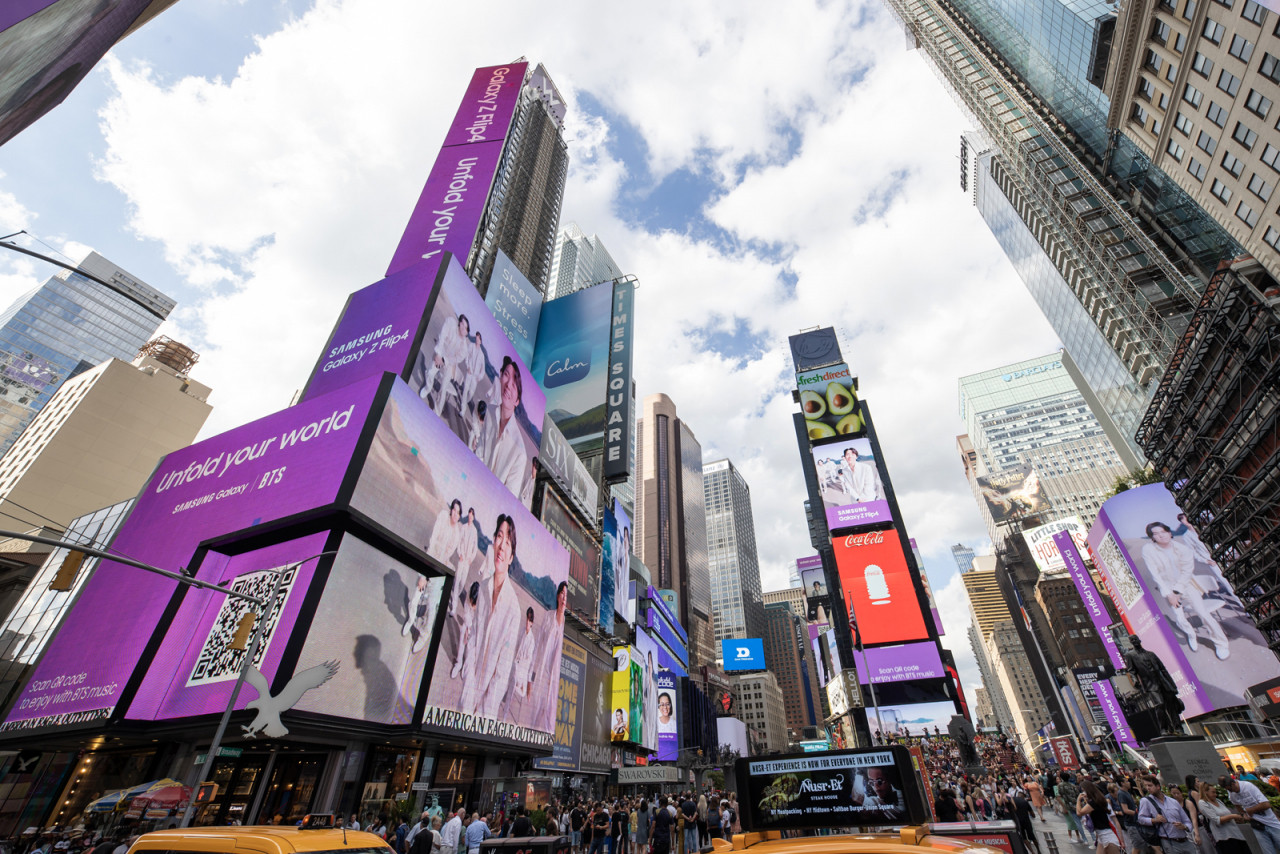The influence of Korean music groups has gone beyond Asia, spreading the K-pop wave around the world, including leading music markets such as the US and Europe.
In recent days, information about BlackPink’s show in Vietnam has been a hot topic on the media and social networks. Many people are surprised by the influence of a Korean girl group on domestic audiences. However, it is not only young people in Vietnam who are “crazy” about BlackPink .
Over the past 15 years, K-pop has grown from a regional musical phenomenon to a global entertainment powerhouse. Now, K-pop is everywhere, from viral hits on the Billboard Hot 100 to giant billboards in American shopping malls.
Global socio-cultural phenomenon
The K-pop wave with recent representative names such as BTS, BlackPink, Exo, Twice has swept the world, breaking a series of records, creating media, fashion , culture, cuisine... fevers outside of their addictive music genre.
According to the Korea Herald , a few years ago, breaking into the Billboard charts was a difficult milestone, especially for non-English speaking artists or artists from outside the U.S. market. But Korean singers and groups have made their mark on the world's largest music charts and markets.
Twice, BTS, BlackPink tours are selling out stadiums around the world. Global streaming services are competing to buy exclusive rights to Korean content, including documentaries about BlackPink and BTS.
Notably, BTS is the first K-pop group to reach No. 1 on the Billboard Hot 100 singles chart, perform at the prestigious Grammy Awards. The 7 young members also had the honor of appearing at a United Nations conference and giving an important speech.

BTS performs 'Butter' at the 64th Grammy Awards in Las Vegas (USA). Photo: AP.
As K-pop grows into a cultural craze, experts say it is not a music genre created in Korea but by Korea.
For many fans, K-pop culture is about more than fashion, food, and entertainment; it's also a community where marginalized groups can come together. According to the LA Times , women and people of color are overrepresented in the K-pop fandom. For them, part of the appeal is the possibility of an alternative to Western pop culture models.
BTS’s rise to global prominence coincided with the rise of social movements like #MeToo and Black Lives Matter , which have helped elevate the voices of the marginalized. That’s no coincidence. With lyrics that focus on love and self-acceptance, fans form close, communal connections through the idol groups’ music.

BTS's image on a giant billboard in New York's Times Square. Photo: Yonhap.
Why is K-pop popular?
This is a question that returns 246 million results within 0.3 seconds when searching with Google. From major magazines like Rolling Stone, The Washington Post , to international data research companies like Statista, Chatmetric, all want to find the answer from many different angles and aspects.
A number of reasons have been put forward to explain the phenomenal success of K-pop, especially Korean idol groups. The Daily Star argues that the ingenious approach to music videos, genuine talent and hard work set K-pop apart from any other music genre today.
According to Vox , K-pop has become a global phenomenon thanks to its distinctive blend of addictive melodies, slick choreography, and massive tours by singers and idol groups who have undergone years of rigorous training under the professional training systems of South Korea's top entertainment companies.
Meanwhile, Lee Hye-jin, a professor of communications at the University of Southern California, said that K-pop's success comes from the blend of Western music and Korean culture. This helps K-pop attract international fans, including markets that are notoriously difficult for non-English-speaking artists.

BlackPink appeared on stage at the 2022 MTV Video Music Awards held in New Jersey (USA). Photo: Variety.
From a statistical data perspective, Statista points out the three most important reasons leading to K-pop's resounding success in the entertainment industry and becoming a global cultural phenomenon.
The first factor is the appeal of the musical melody, especially the chorus (15.6%). Next, the appearance and attractive style of the artists (15.4%) play an equally important role. The genre of music that goes beyond the framework of Korean culture comes in third place (14%). It is a mix of pop music other than mainstream American pop; a unique combination of R&B, hip-hop, experimental, rock, jazz, dance, disco and classical.
Other factors mentioned include lavish costumes, elaborate and expensive shows, and the band's fiery performances on grand stages.
In K-pop music videos, the interaction with various elements, the connection between band members, and the vibrant, seductive, and “trendy” dance moves are the factors that attract audiences.
Korean K-pop singers and idol groups also have personalities that are opposite to those of the West. They are humble, approachable, and undergo decades of training before officially stepping onto the stage. In addition to their singing ability, they also have skills as professional actors and dancers.
As Professor Suk-Young Kim, a theater and performance researcher at the University of California and author of K-pop Live: Fans, Idols, and Multimedia Performance , notes, K-pop has ushered in a new aesthetic that has transformed popular culture, from vibrant performances to live events to even children's toys.
Video with more than 340 million views of singer Jisoo - member of BlackPink group:
Vietnamnet.vn



![[Photo] Hundreds of meters of Hoi An coastline seriously eroded](https://vphoto.vietnam.vn/thumb/1200x675/vietnam/resource/IMAGE/2025/9/13/57c85b745a004d169dfe1ee36b6777e5)


![[Photo] Vinh Hao-Phan Thiet Expressway has a frog's jaw](https://vphoto.vietnam.vn/thumb/1200x675/vietnam/resource/IMAGE/2025/9/13/a89ffa426f7a46ffb810cb1d7bdfb1b8)
![[Photo] General Secretary To Lam attends the Digital Popular Education Symposium - Digital National Assembly](https://vphoto.vietnam.vn/thumb/1200x675/vietnam/resource/IMAGE/2025/9/13/43ebd93f0f5e4d98a2749dab86def7cd)
![[Photo] General Secretary To Lam attends the 80th Anniversary of the People's Court's Traditional Day](https://vphoto.vietnam.vn/thumb/1200x675/vietnam/resource/IMAGE/2025/9/13/ff42d08a51cc4673bba7c56f6a576384)






















































































Comment (0)